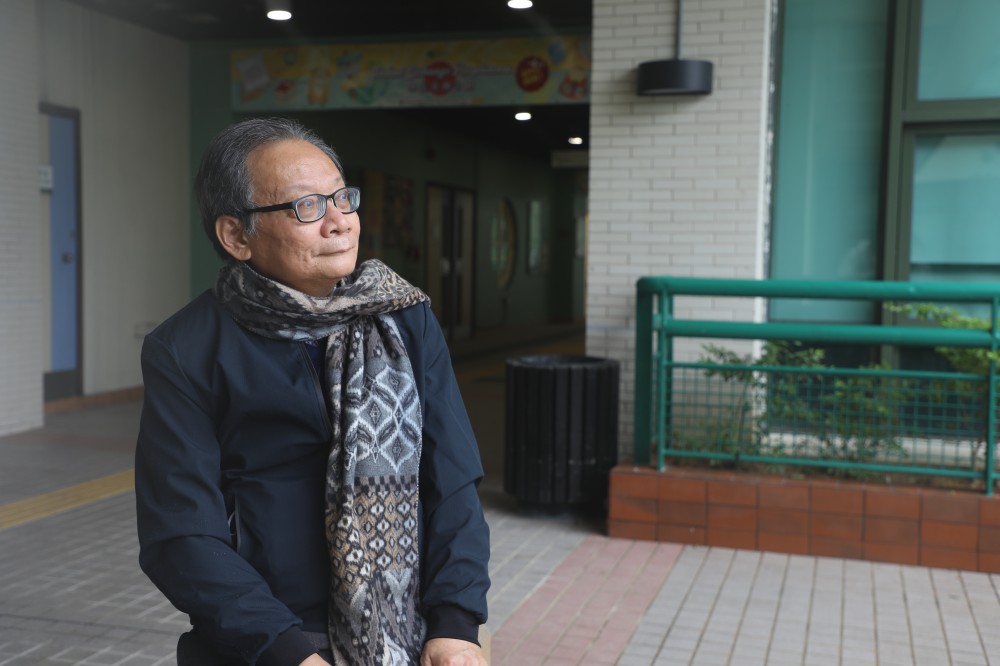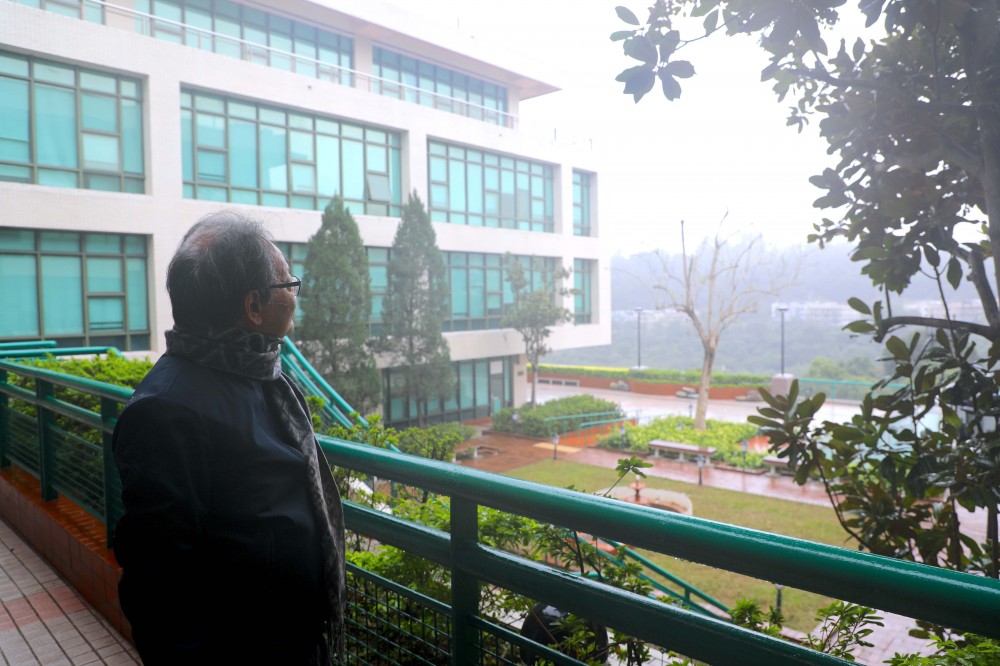The turn of the year has arrived

Winter in Hong Kong isn’t as obvious as in places like Europe and North America. The withering of grass, the yellowing of foliage in fields, and occasional chills in the air are the most notable signs of the season in this city. I remember when I studied my doctoral degree in Ontario, winter meant severe cold, marked by howling winds, frozen lakes and waterfalls, and heavy blankets of snow. But whether one is in Hong Kong or Ontario, winter means that the end of the year has arrived.
The turn of the year is perhaps the best time for us to look back on how much we have achieved in the past few months. This issue of FLASS FORWARD covers much ground about our faculty. In the feature story, Professor Wong Ming-hung and Professor Rudolf Wu Shiu-sun, both Advisors (Environmental Science) to the Department of Science and Environmental Studies and environmental scientists of renown, share with us an insightful dialogue on the causes and severity of soil and marine pollution, as well as the impact of pollution on environmental and human health. They also remind us that education has a big role to play in the future of environmental protection.
Climate change has gripped the attention of academia since the 1990s, when the consensus that greenhouse gases occupy a central position in global warming was formed. At FLASS, Dr Pei Qing, Associate Head and Associate Professor of the Department of Social Sciences, adopts a cross-disciplinary approach that combines the strengths of human geography and physical geography to conduct research on climate change. In this story about our distinguished researchers, Dr Pei tells us how severe the economic, social and political consequences of climate change can be.
At the end of every year, Stanford University announces the list of the top 2% most highly cited scientists across different disciplines. This year, 19 FLASS scholars have been included in the list. This encouraging news reflects the strength of our faculty’s research team in the areas of sciences, social sciences and health sciences. Inventions by our researchers claimed a total of 16 awards at the Seventh International Invention Innovation Competition in Canada (iCAN 2022), and four medals at the International Innovation and Invention Competition (IIIC). These accomplishments clearly echo our belief that research works are not limited to advancing the knowledge frontier; the knowledge gained can benefit people through practical and impactful inventions.
This issue also covers the graduation ceremonies held in November and December 2022. As we continue to hold fast to our three pillars of teaching, research and knowledge transfer works, we provide our students with the best education they deserve to receive. Learning and teaching meets a perfect conclusion with the sight of our students in graduation gowns chatting with professors and taking photos with their family members and classmates at their graduation ceremony. Even though their learning at FLASS may have come to an end, their connections with us will never end.
People love to equate a scholar to someone who is always absorbed with identifying and solving problems. They spend long hours reading journals at their desks, searching for information in the library, and conducting research in the laboratory to make headway into existing knowledge claims. Apart from these so-called academic poises, there are other sides to scholars. Dr Lobo Louie Hung-tak from the Department of Health and Physical Education is into physical exercise and outdoor adventures big time. His passion for kayaking has shone bright for more than four decades since his first encounter with the water sport during a 25-day outward bound experience trip in 1977. Dr Tommy Kwan Chung-yin from the Department of Asian and Policy Studies calls himself a scholar-slash-public writer, and is a prolific writer and an experienced radio presenter. With the inquisitive mind of a scholar, Tommy talks about classical music, travel and social issues in his essays and radio programmes. All of these stories are must-reads in this issue of the faculty newsletter.

As winter nears its end, Chinese New Year is around the corner. Looking back, our faculty has achieved a great deal in our pursuit of exploring new knowledge, creating impactful inventions, nurturing our next generation and engaging in community work. Credit must go to all academic and administrative staff. Without their persistent efforts, we could not accomplish what we set out to achieve. As the season begins to change, I want to thank you all for your excellent work and contributions, and I wish you a prosperous Year of the Rabbit.
Professor Li Wai-keung
Dean of Faculty of Liberal Arts and Social Sciences
19 January 2023